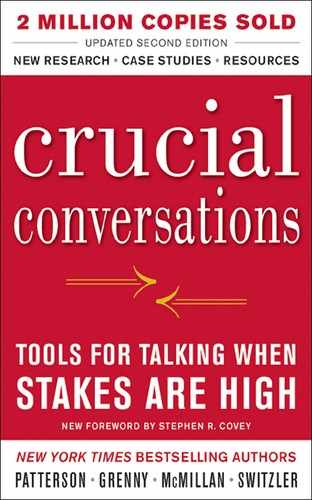WORK ON ME FIRST, US SECOND
Let’s start with a true story. Two young sisters and their father scurry into their hotel room after spending a hot afternoon at Disneyland. Given the repressive heat, the girls have consumed enough soda pop to fill a small barrel. As the two bursting kids enter their room, they have but one thought—to head for the head.
Since the bathroom is a one-holer, it isn’t long until a fight breaks out. Both of the desperate children start arguing, pushing, and name-calling as they dance around the tiny bathroom. Eventually one calls out to her father for help.
“Dad, I got here first!”
“I know, but I need to go worse!”
“How do you know? You’re not in my body. I didn’t even go before we left this morning!”
“You’re so selfish.”
Dad proposes a plan. “Girls, I’m not going to solve this for you. You can stay in the bathroom and figure out who goes first and who goes second. There’s only one rule. No hitting.”
As the two antsy kids begin their crucial conversation, Dad checks his watch. He wonders how long it’ll take. As the minutes slowly tick away, he hears nothing more than an occasional outburst of sarcasm. Finally after twenty-five long minutes, the toilet flushes. One girl comes out. A minute later, another flush and out walks her sister. With both girls in the room, Dad asks, “Do you know how many times both of you could have gone to the bathroom in the time it took you to work that out?”
The idea had not occurred to the little scamps. Dad then probed further, “Why did it take so long for two of you to use the restroom?”
“Because she’s always so selfish!”
“Listen to her. She’s calling me names when she could have just waited. She always has to have her way!”
Both girls claimed what they wanted most was to go to the bathroom. Then they behaved in ways that ensured the bathroom was little more than a distant dream.
And that’s the first problem we face in our crucial conversations. Our problem is not that our behavior degenerates. It’s that our motives do—a fact that we usually miss.
So the first step to achieving the results we really want is to fix the problem of believing that others are the source of all that ails us. It’s our dogmatic conviction that “if we could just fix those losers, all would go better” that keeps us from taking action that could lead to dialogue and progress. Which is why it’s no surprise that those who are best at dialogue tend to turn this logic around. They believe the best way to work on “us” is to start with “me.”
